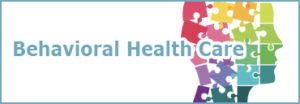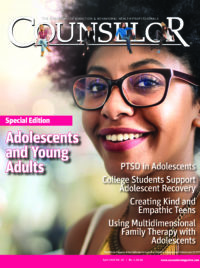Share
 Adherence in behavioral health care refers to the extent clients attend scheduled treatment activities, take medications as prescribed, and engage in agreed-upon activities that facilitate recovery from psychiatric, substance use, or co-occurring disorders (CODs). Clients with CODs are at higher risk for poor adherence compared to those with a single type of disorder (Kelly, Daley, & Douaihy, 2014; Daley & Zuckoff, 1999).
Adherence in behavioral health care refers to the extent clients attend scheduled treatment activities, take medications as prescribed, and engage in agreed-upon activities that facilitate recovery from psychiatric, substance use, or co-occurring disorders (CODs). Clients with CODs are at higher risk for poor adherence compared to those with a single type of disorder (Kelly, Daley, & Douaihy, 2014; Daley & Zuckoff, 1999).
Poor adherence to treatment shows in missing treatment sessions, dropping out early, failure to transition from one level of care to the next (e.g., from a psychiatric hospital or addiction rehabilitation program to ambulatory treatment such as an intensive outpatient or outpatient program), failure to take psychiatric or addiction medications as prescribed, or stopping medications without first consulting a physician or other practitioner (Chapman & Horne, 2013; Magura, Rosenblum, & Fong, 2011). Poor adherence also shows in cutting down or stopping mutual-support meetings or other recovery activities in the community. The decision to reduce or stop treatment or recovery activities is often made by clients without discussing this with their practitioners or confidantes.
Factors Affecting Adherence
Substance use, misuse, and substance use disorders (SUDs) are associated with poor adherence among psychiatric patients (Magura et al., 2011). This is why it is important for psychiatric practitioners to address substance use issues among clients in treatment for any type of mental disorder.
Following are factors that affect clients’ adherence to treatment or recovery activities, in either negative or positive ways (Kelly et al., 2014; Daley & Zuckoff, 1999; Chapman & Horne, 2013; Magura et al., 2011; Daley, 2014).
Severity and Type of Current Psychiatric Symptoms
Poor judgment associated with many psychiatric disorders can affect clients’ decisions to reduce or stop psychosocial treatment or medications early, or resist a recommended treatment. One woman who tried to recover from recurrent major depression with therapy alone came to the realization that antidepressant medication was needed for her recovery to progress. She learned that she should continue taking medications even when her mood symptoms remitted or improved significantly. Clients with more severe, chronic, or recurrent conditions who accept the need for “maintenance” treatment during periods of wellness are more likely to comply with care.
Substance Use Issues
Strong cravings for drugs or alcohol, or social pressures from peers that increase the desire to use substances, can lead clients to miss or stop attending treatment sessions and/or mutual-support program meetings. Some clients reported that boredom with treatment led to decisions to stop treatment early. One client stated he had to change his attitude and stick with recovery, even when he felt bored with it, and engage in new enjoyable activities so he could experience fun without using substances.
Motivation and Attitudes
Client motivation to change, beliefs about the types and helpfulness of treatment desired, and expectations of treatment and recovery activities affect decisions to engage or not engage in treatment or recovery. Fighting through periods of low motivation or thoughts related to missing treatment or recovery meetings can help clients remain involved and work through these early recovery challenges. In a recent COD treatment group I conducted, a man with a history of multiple episodes of treatment and relapses told the group he thought about missing the program this day. This led to a productive discussion of how ambivalence towards treatment and periods of wavering motivation are common with CODs, often on a daily basis. Many group members related to this man’s experience, which led to a discussion of how following the practical coping strategy of “drag your body and your mind will follow” can positively impact adherence to treatment. Group members were able to understand the relationship between failure to show for sessions and the potential for an increase in the risk of early treatment dropout and a recurrence of either disorder. The group discussed two conditions under which they should attend treatment and recovery activities: when they feel like it and when they do not feel like it.
Personality and Coping Skills
Personality and coping skills affect clients’ abilities to identify and manage problems, stressors, and symptoms of CODs. Impulsivity is common with addiction and some psychiatric disorders, and can lead to decisions to stop treatment or recovery activities or engage in substance use. Many clients report they have the skills to reduce relapse risk, but when they fail to use those skills, they are more likely to show poor adherence to treatment or their goal of abstinence.
Social Support
Strong alliances between clients and practitioners can have a positive impact on adherence and treatment outcomes (Chapman & Horne, 2013). Family, friends, or peers in recovery can serve as mentors or confidantes and support clients during periods of difficulty, which can positively affect treatment adherence. One woman stated that when she “reached for the phone rather than a drink and called a support person,” she was less likely to drink and more likely to stay active in treatment and recovery.
Access to Appropriate Treatment
Quick and easy access to treatment when it is needed affects adherence. For some clients, uncomfortable side effects can lead to reducing or stopping psychiatric medication. Access to medications such as methadone or buprenorphine to support recovery from opioid use disorder can lead to clients engaging more actively in psychosocial treatment because these medications can decrease the strong craving for opioids. Medications can also help some clients with more severe alcohol use disorders by reducing their desire to drink.
Effects of Adherence
Poor adherence often has a negative impact on clients, their families, practitioners, health care systems, and payers. Among clients with severe mental disorders such as schizophrenia, poor adherence can lead to a worsening of the clinical condition, which contributes to a higher risk for suicidality, violence, and premature mortality (Chapman & Horne, 2013). Poor adherence to psychosocial treatment, medications, or both can also lead to admissions to higher and more expensive levels of care in psychiatric hospitals, medical hospitals, or addiction rehabilitation or withdrawal management programs due to symptom exacerbation or severity (Daley & Zuckoff, 1999; Chapman & Horne, 2013, Magura et al., 2011).
On the other hand, clients who adhere to their treatment plans, attend scheduled sessions or activities, and/or take medication as prescribed are more likely to have better substance use and psychiatric clinical outcomes compared to those who are poorly adherent. Clients who complete inpatient or residential episodes of care and continue to attend ongoing sessions do better than those who drop out prematurely (Daley & Zuckoff, 1999).
In my next column I will discuss strategies for bolstering adherence in clients.
References
American Psychiatric Association (APA). (2013). Diagnostic and statistical manual of mental disorders (5th ed.). Washington, DC: Author.
Alcoholics Anonymous World Services. (1994). Alcoholics anonymous. New York, NY: Author.
Corrigan, P. W., Mueser, K. T., Bond, G. R., Drake, R. E., & Solomon, P. (2009). Principles and practice of psychiatric rehabilitation: An empirical approach. New York, NY: Guilford Press.
Daley, D. C., & Douiahy, A. (2015). Relapse prevention counseling: Clinical strategies to guide addiction recovery and reduce relapse. Eau Claire, WI: PESI Publishing & Media.
Gingerich, S., & Mueser, K. T. (2015). Illness management and recovery: Personalized skills and strategies for those with mental illness (3rd ed.). Center City, MN: Hazelden.
Liberman, R. P., Wallace, C., Eckman, T., & Wirshing, W. (1988). Symptom management module. Los Angeles, CA: Psychiatric Rehabilitation Center.
Mueser, K. T., Noordsy, D. L., Drake, R. E., & Smith, L. F. (2003). Integrated treatment for dual disorders: A guide to effective practice. New York, NY: Guilford Press.
Ralph, R. O., & Corrigan, P. W. (2005). Recovery in mental illness: Broadening our understanding of wellness. Washington, DC: American Psychological Association.
Smith, L. F., Drake, R. E., Mueser, K. T., Brunette, M. T., Becker, D. R., McGovern, M. R., . . . Acquilano, S. C. (2010). Integrated dual disorders treatment: Best practices, skills, and resources for successful client care. Retrieved from https://www.hazelden.org/web/public/document/iddt_manual_sample.pdf

Dennis Daley, PhD
Dennis C. Daley, PhD, served many roles at the University of Pittsburgh School of Medicine. He is the author of many articles, treatment manuals, books, and guides for families and children affected by addiction. He helped facilitate B2H programs at two hospitals.













 Counselor Magazine is the official publication of the California Association of Addiction Programs and Professionals (CCAPP). Counselor offers online continuing education, article archives, subscription deals, and article submission guidelines. It has been serving the addiction field for more than thirty years.
Counselor Magazine is the official publication of the California Association of Addiction Programs and Professionals (CCAPP). Counselor offers online continuing education, article archives, subscription deals, and article submission guidelines. It has been serving the addiction field for more than thirty years.